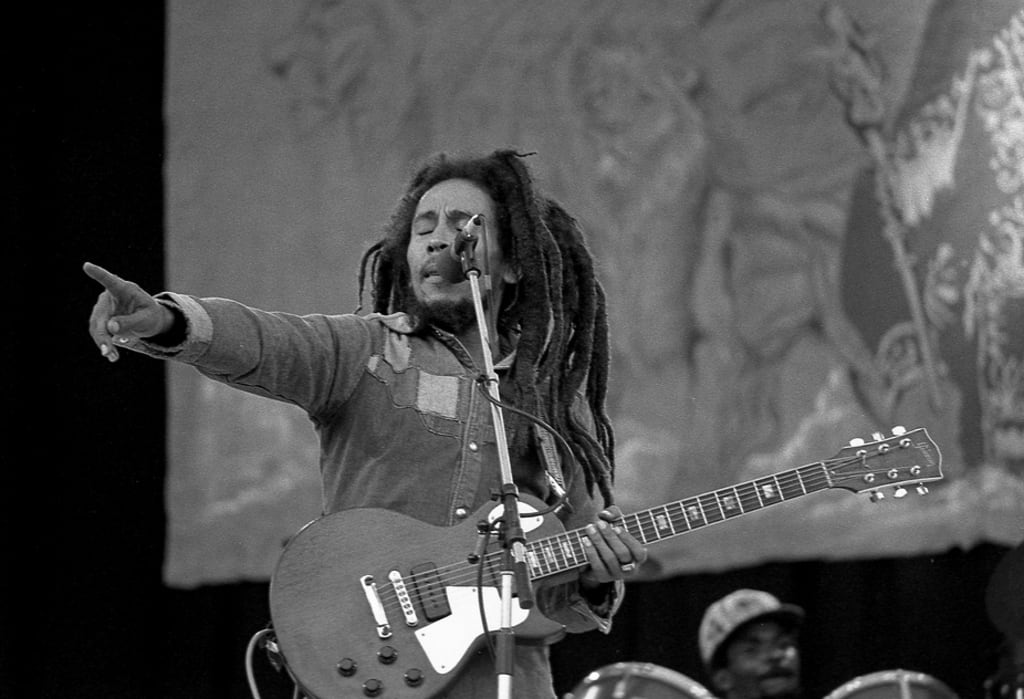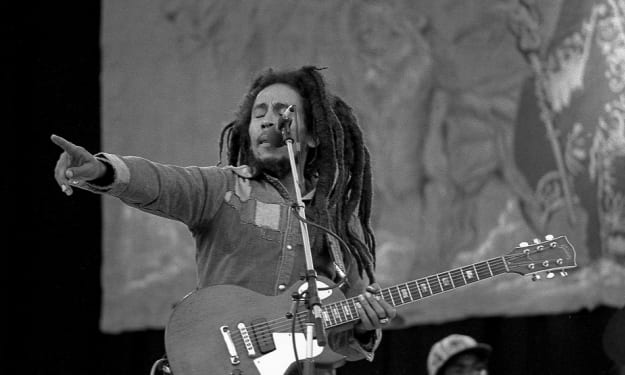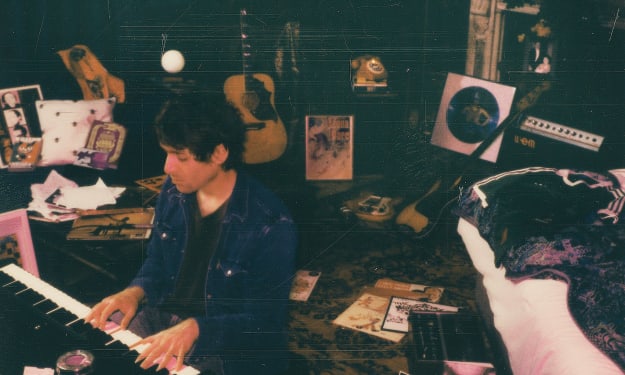
Music, with its mesmerizing melodies and captivating rhythms, possesses a remarkable ability to transcend cultural boundaries and touch the depths of our souls. It serves as a universal language that unites people, ignites emotions, and inspires change. Amidst the vast tapestry of musical genres, one stands out as a beacon of spirituality, resilience, and profound connection – Rasta Music.
Rooted in the Rastafari movement, Rasta Music embodies the essence of a profound spiritual and social philosophy. Originating in Jamaica, Rastafari emerged as a transformative movement in the early 20th century, embracing the teachings of Ethiopian Emperor Haile Selassie I as the earthly manifestation of divinity. Rasta Music, deeply intertwined with the principles of Rastafari, acts as a conduit for expressing the movement's core values of unity, equality, and justice.
Within the harmonious rhythms and soul-stirring melodies of Rasta Music, there lies a profound power to spread joy, ignite hope, and nurture empathy. Infused with the blessings of Jah Rastafari, this genre transcends its sonic vibrations, inspiring individuals to embrace love, celebrate life, and envision a world transformed by compassion and understanding. In this blog post, we will delve into the rich tapestry of Rasta Music, exploring its ability to touch hearts, uplift spirits, and unite communities in a shared pursuit of happiness and enlightenment.
The Roots of Rasta Music
Rasta Music traces its origins back to the vibrant cultural landscape of Jamaica, where it emerged within the context of the Rastafari movement. The movement itself evolved in the early 20th century, borne out of the experiences of marginalized communities and the desire for spiritual liberation and social justice. Rasta Music became an integral part of this movement, serving as a medium for expression, empowerment, and cultural preservation.
Influenced by the rich heritage of African rhythms and spirituality, Rasta Music draws inspiration from Nyabinghi drumming and traditional African music. The rhythmic pulsations of the Nyabinghi drums, a central component of Rastafari ceremonial gatherings, form the heartbeat of Rasta Music. This sacred drumming style, rooted in the African diaspora, creates a captivating and primal energy that resonates with the collective spirit of the Rasta community.
Moreover, traditional African music, with its emphasis on communal participation, call-and-response vocals, and spiritually infused melodies, played a crucial role in shaping the sonic landscape of Rasta Music. The use of traditional instruments like the nyabinghi drums, bass guitar, and acoustic guitar further reflects the connection to African musical traditions.
Rasta Music's influence extends beyond the boundaries of Jamaica, finding resonance in the global phenomenon of reggae music. Reggae, which emerged in the 1960s, became the vehicle through which Rasta Music gained international recognition and popularity. Pioneers such as Bob Marley, Peter Tosh, and Bunny Wailer, among others, used reggae as a platform to share Rasta-inspired messages of social justice, love, and spirituality with a worldwide audience.
Bob Marley, in particular, became an iconic figure synonymous with Rasta Music and its principles. His soul-stirring compositions, characterized by their infectious grooves, profound lyrics, and indomitable spirit, continue to resonate with people of all backgrounds. Through their music, Rasta artists like Marley contributed to the global spread of Rastafari's philosophy and its music, cementing reggae's place as a genre that encapsulates the spirit of social consciousness and spiritual awakening.
The roots of Rasta Music, firmly embedded in Jamaican culture and inspired by African musical traditions, have blossomed into a global phenomenon through the popularity of reggae and the enduring impact of influential Rasta artists like Bob Marley. Their contributions have paved the way for Rasta Music to transcend borders, cultures, and generations, carrying the messages of joy, hope, and empathy to listeners around the world.
Joyful Rhythms: Celebrating Life and Unity
Rasta Music is characterized by its uplifting and infectious rhythms that have the power to move both body and soul. Drawing influence from traditional African music, these rhythms create a vibrant tapestry of sounds that resonate with listeners on a deeply primal level. The syncopated beats, pulsating basslines, and rhythmic guitar strums come together to form a musical landscape that is irresistible and captivating.
Beyond the captivating rhythms, Rasta Music carries profound messages of positivity, love, and unity. The lyrics often serve as vehicles for spreading joy and encouraging listeners to embrace the beauty of life. The songs embody the spirit of Rastafari, promoting values such as peace, harmony, and togetherness. Through their music, Rasta artists inspire individuals to rise above adversity, find inner strength, and celebrate the shared human experience.
The messages of love and unity that permeate Rasta Music emphasize the interconnectedness of all people and the importance of collective upliftment. The lyrics speak to the power of unity in the face of societal challenges, advocating for a world where everyone can live in harmony and peace. By embracing these messages, listeners are encouraged to nurture a sense of empathy, compassion, and understanding towards one another.
Numerous Rasta songs have become anthems of joy, celebration, and a zest for life. One such example is Bob Marley's iconic track "Three Little Birds." Its catchy melody and uplifting lyrics, proclaiming "Don't worry about a thing, 'cause every little thing gonna be alright," encapsulate the essence of finding joy and hope amidst adversity.
Other popular Rasta songs that inspire joy and encourage celebration of life include "One Love" by Bob Marley, which speaks to the unifying power of love, and "Buffalo Soldier" by Bob Marley and the Wailers, which tells the story of resilience and the triumph of the human spirit.
These songs, along with many others in the Rasta Music repertoire, serve as reminders to appreciate life's blessings, find strength in unity, and embrace the joy that music brings. Through their infectious rhythms and uplifting messages, Rasta songs create a sense of unity and celebration, fostering a collective spirit of joy and optimism.
In the realm of Rasta Music, joy becomes a transformative force, uplifting individuals and communities alike, and reinforcing the belief in the power of music to inspire, heal, and connect people from all walks of life.
Messages of Hope: Empowering the Masses
Rasta Music serves as a powerful medium for conveying messages of hope, particularly in times of adversity. It embraces the belief that music has the ability to uplift spirits, inspire change, and provide solace in challenging circumstances. Rasta artists use their music to offer a beacon of hope, reminding listeners that they are not alone in their struggles and that there is always the potential for a brighter future.
Through their lyrics and melodies, Rasta Music conveys a sense of optimism, urging individuals to persevere and overcome obstacles. The music becomes a vehicle for resilience, encouraging listeners to maintain a positive outlook and find strength within themselves. It offers a refuge for those seeking solace, reminding them that there is always hope, even in the darkest of times.
Rasta Music is deeply rooted in the principles of social justice, equality, and the quest for overcoming oppression. It addresses pressing societal issues and speaks out against systems of injustice and inequality. Rasta artists use their music as a platform to shed light on these issues, raising awareness and inspiring action.
The lyrics of Rasta Music often tackle themes such as poverty, discrimination, and political corruption. They highlight the importance of equality, emphasizing the inherent worth and dignity of every individual. The music serves as a call to action, urging listeners to join the fight for justice and stand against oppression.
Many influential Rasta musicians have used their platform to advocate for positive change and inspire hope in the hearts of the masses. Bob Marley, often regarded as a musical prophet, employed his captivating melodies and poignant lyrics to convey messages of peace, love, and unity. His timeless songs, such as "Get Up, Stand Up" and "Redemption Song," serve as anthems of empowerment, encouraging listeners to take a stand and fight for their rights.
Other notable Rasta musicians, such as Peter Tosh, Burning Spear, and Third World, have also made significant contributions to the movement for social change through their music. They have used their artistic expressions to challenge the status quo, raise consciousness, and ignite a sense of hope among listeners.
These influential Rasta musicians showcase the power of music as a catalyst for positive transformation. Through their unwavering commitment to advocating for justice and equality, they have inspired generations to believe in the possibility of a better world. Their music empowers the masses, instilling a sense of hope and encouraging individuals to become agents of change in their communities.
In the realm of Rasta Music, messages of hope become a rallying cry for social progress and a call to action. Through their music, Rasta artists empower listeners to believe in their own agency, to stand up against injustice, and to work towards a future where hope prevails and equality reigns.
Cultivating Empathy: Spreading Love and Compassion
Rasta Music places a profound emphasis on empathy and compassion, nurturing a deep connection to the well-being of fellow human beings. Rooted in the principles of Rastafari, this genre encourages listeners to embrace love, kindness, and understanding as fundamental values in their interactions with others. Rasta Music serves as a vehicle for fostering empathy, inviting individuals to step into the shoes of others and recognize the shared humanity that binds us all.
Rasta artists utilize their music as a powerful tool for addressing societal issues and promoting empathy. Through their lyrics, they shed light on the struggles faced by marginalized communities, urging listeners to empathize with their experiences and advocate for change. Rasta Music confronts issues such as poverty, racism, and social injustice head-on, challenging listeners to confront their own biases and cultivate a greater sense of compassion.
Rasta musicians also use their music to raise awareness about global issues, such as environmental degradation and the impact of colonialism. They encourage listeners to broaden their perspective and empathize with communities affected by these challenges, fostering a sense of interconnectedness and responsibility towards one another and the planet.
Stories and examples of Rasta songs abound, touching hearts and inspiring listeners to embrace compassion in their lives. One such example is "War" by Bob Marley, which addresses the pain and suffering caused by war and calls for unity and understanding among people. This song serves as a powerful reminder of the human cost of conflict and the need for empathy to bridge divides.
Additionally, "No Woman, No Cry" by Bob Marley reflects on the struggles faced by women in impoverished communities and encourages empathy towards their experiences. The song serves as an anthem of solidarity, reminding listeners to extend compassion and support to those facing adversity.
Other Rasta songs, such as "Redemption Song" by Bob Marley, speak to the legacy of slavery and colonialism and call for empathy and understanding in healing the wounds of the past. Through these songs, Rasta artists touch the hearts of listeners, invoking a sense of shared humanity and inspiring a more compassionate outlook.
Rasta Music has the power to break down barriers, transcend differences, and cultivate empathy. Through its heartfelt melodies and profound lyrics, it encourages listeners to step outside of their own experiences and connect with the experiences of others. By fostering empathy and compassion, Rasta Music paves the way for greater understanding, unity, and positive change in the world.
The Blessings of Jah Rastafari: Spiritual and Personal Growth
Jah Rastafari holds deep spiritual significance within Rasta Music, serving as a divine presence and a source of blessings. Rastafarians believe that Jah, often associated with the almighty God, is the ultimate guide and protector. Rasta Music embraces this spiritual connection, infusing its melodies, lyrics, and rhythms with the blessings and wisdom of Jah.
Jah Rastafari is seen as the embodiment of love, compassion, and divine consciousness. Rasta Music becomes a conduit through which individuals can connect with the spiritual realm, seeking solace, guidance, and personal growth. The music serves as a pathway for listeners to deepen their understanding of themselves, their place in the world, and their relationship with a higher power.
Rasta Music has a transformative power that resonates deeply with individuals, facilitating personal growth and spiritual awakening. Through its evocative melodies and profound lyrics, it offers a space for self-reflection, introspection, and introspective journeys. Rasta Music encourages listeners to question societal norms, challenge their own beliefs, and embark on a path of self-discovery.
The spiritual and philosophical teachings embedded within Rasta Music inspire individuals to cultivate qualities such as love, humility, and gratitude. The music becomes a catalyst for personal transformation, encouraging listeners to embrace a more conscious and enlightened way of being. Rasta Music provides a framework for individuals to explore their own spirituality, find inner peace, and experience personal growth.
Countless personal anecdotes and testimonials attest to the positive impact of Rasta Music on listeners' journeys. Many individuals have found solace, inspiration, and spiritual growth through the messages and melodies of Rasta artists. The music has provided a guiding light during difficult times, offering comfort and a sense of connection to something greater.
Listeners have shared stories of how Rasta Music has helped them overcome personal challenges, find strength in their convictions, and navigate their spiritual paths. Some have found a renewed sense of purpose and direction in life, inspired by the empowering messages of unity, equality, and social justice conveyed through Rasta Music.
Personal testimonials also highlight the profound emotional and spiritual experiences that Rasta Music evokes. The music has the ability to uplift spirits, ignite passion, and awaken dormant aspects of individuals' consciousness. It fosters a sense of community and belonging, uniting people in their shared pursuit of spiritual growth and personal transformation.
In the realm of Rasta Music, the blessings of Jah Rastafari manifest as a catalyst for spiritual and personal growth. Through its melodies, lyrics, and transformative power, it invites listeners to embark on a profound journey of self-discovery, embracing love, compassion, and higher consciousness. Rasta Music serves as a vehicle for connecting with the divine and nurturing a deeper understanding of oneself and the world, ultimately facilitating spiritual and personal growth in the lives of its listeners.
Conclusion
Rasta Music holds immense significance as a powerful medium for spreading joy, hope, and empathy infused with the blessings of Jah Rastafari. Through captivating melodies, profound lyrics, and infectious rhythms, Rasta Music has the ability to uplift spirits, inspire change, and foster a sense of unity among people from all walks of life.
Throughout this exploration, we have delved into the roots of Rasta Music, its historical background, and its connection to the Rastafari movement. We have seen how Rasta Music draws influence from traditional African music, Nyabinghi drumming, and the global popularity of reggae, particularly through the iconic contributions of artists like Bob Marley.
Rasta Music celebrates life and unity, inviting listeners to embrace the beauty of existence and nurture a collective spirit of joy. It promotes positivity, love, and unity through its lyrics and messages, encouraging empathy and compassion towards fellow human beings.
Moreover, Rasta Music empowers the masses by offering messages of hope, addressing societal issues, and advocating for positive change. It becomes a catalyst for personal and spiritual growth, inspiring individuals to persevere, confront injustice, and strive for a better world.
The enduring legacy of Rasta Music lies in its ability to connect people from diverse backgrounds. It transcends cultural boundaries, inviting individuals to embrace a shared humanity and fostering a sense of belonging and understanding. Rasta Music is a testament to the power of music as a universal language, capable of bringing people together, breaking down barriers, and creating a sense of unity.
As we conclude our journey through the blessings of Jah Rastafari and the impact of Rasta Music, I invite you to explore this genre further. Take the time to listen to the uplifting melodies and powerful messages conveyed by Rasta artists. Embrace the joy, hope, and empathy they offer and allow their music to resonate in your heart and soul.
Let us heed the call-to-action and integrate the positive influence of Rasta Music into our own lives. Let us strive to spread joy, hope, and empathy, and to advocate for positive change in our communities. Together, we can create a world that reflects the principles of Rastafari - a world rooted in love, equality, and unity.
In the realm of Rasta Music, we discover a transformative force that invites us to celebrate life, embrace compassion, and cultivate a deeper connection with ourselves and others. May the blessings of Jah Rastafari continue to inspire and guide us on our collective journey towards a brighter future.
Final Note
If you’re interested in exploring Rastafarian recipes and culture, we invite you to check out Fifth Degree and our collection of Rastafarian clothing. We believe that what you wear can be a powerful expression of your values and beliefs, and we’re proud to offer a range of high-quality, stylish, and socially conscious clothing for individuals who are seeking to live in harmony with nature and the divine. Visit our website today to learn more about Buju Banton quotes, best part of Jamaica to vacation, mens joggers sale, rasta sweater and find the perfect Rastafarian clothes for woman for you.
Picture Credit: Eddie Mallin






Comments
There are no comments for this story
Be the first to respond and start the conversation.